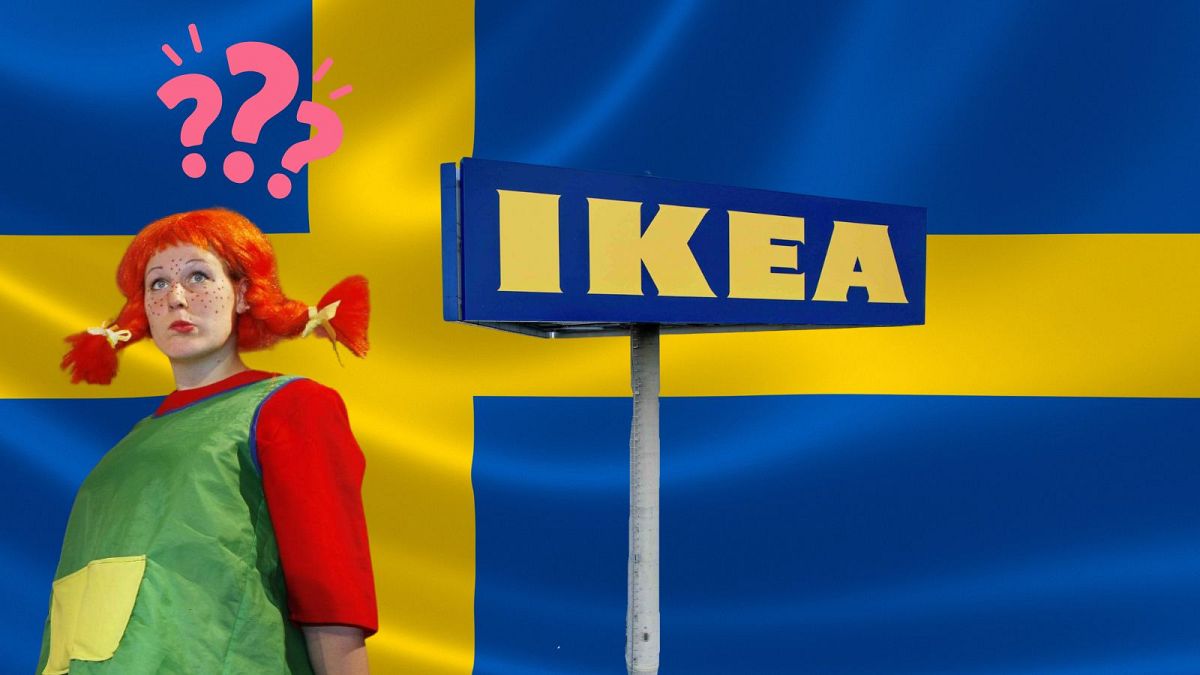Imagine the ambitious but foolhardy endeavour of trying to summarize an entire culture to only 100 works, brands and ideas.
Well, that’s exactly what the Swedish government has undertaken and unveiled. After several years of work and a whopping eight million kronor (approx. €727,000 – according to the Sweden Herald), historian Lars Trägårdh handed over the Swedish cultural canon to the Minister of Culture at a press conference held yesterday in Uppsala.
The list, which purports to define what it means to be Swedish and establish a “shared map and compass” for Swedish citizens and new arrivals to the country, has been something of a pet project for nationalist, anti-immigration Swedish Democrats. It was even part of the election manifesto of the right-wing ruling coalition.
So, what made the final cut?
The Nobel prize, Pippi Longstocking, IKEA, paternity leave and the Gustav Vasa 1541 bible all made it into Sweden’s “cultural canon” list.
Other additions include Ingmar Bergman’s iconic 1957 movie The Seventh Seal; Hilma af Klint’s Målningar till templet; Stockholm city hall, designed by Ragnar Östberg; the practice of Allemansrätt (the freedom to roam), Kakelungnen (an 18th century heating stove) and songs by author and troubadour Evert Taube.
Any alarm bells ringing?
ABBA, arguably Sweden’s most popular cultural export, didn’t make the cut.
The reasoning behind this? Apparently, all items in the canon must be at least 50 years old, making the band ineligible. On top of excluding contemporary experiences.
However, anyone with even the loosest grip on cultural history or who has the capacity to type a four-letter word into a search engine knows that ABBA were formed in 1972, won Eurovision in 1974 and released their seminal self-titled third album featuring ‘SOS’ and ‘Mamma Mia’ in 1975.
Basic mathematics would dictate that ABBA more than qualifies within the reductive 50-year rule. And we’re not the only ones to have noticed this glaring and credibility straining exclusion.
Swedish parliamentarian Jan Ericson said ABBA is “one of the absolutely most important symbols of Swedish culture” internationally. He posted online: ” So, here a bunch of knowledgeable PR experts are sitting and selecting various parts of Swedish culture and society that are supposed to symbolize Sweden. And then they don’t include ABBA. Which abroad is one of the absolutely most important symbols of Swedish culture. What the hell were they thinking there?”
The timeline for eligibility also ruled out most contributions made by the roughly one in five Swedes born abroad. Most of these immigrants arrived in Sweden after 1975.
It’s also worth pointing out that Christian entries dominate on the religion front, with the exception of one of Sweden’s first synagogues, Marstrand. No mention of Sweden’s Muslim population – the faith being the largest non-Christian religious group in the country.
Many have spoken out to condemn the list as discriminatory, with the Swedish Academy that awards Nobel literature prize and representatives of the indigenous Sámi group population both criticising the initiative as too narrow and exclusionist.
The association representing the indigenous people of Tornedalen in northern Sweden shared that it was not allowed to be part of the project, which it described as “continued oppression”.
As for Iranian-born Swedish author Shora Esmailian, she told the Sydsvenskan newspaper that state-imposed canons of what it means to be Swedish would not help to create “a welcoming and equal society.”
Swedish Prime Minister Ulf Kristersson (pictured in X post above with Culture Minister Parisa Liljestrand) defended the initiative by saying: “Understanding the culture that has shaped our country is important for everyone. But perhaps most important for those who have come to Sweden and for those growing up in homes where there are many missing Swedish references.”
As for Liljestrand, she clapped back at critics by saying the canon has been misunderstood.
“Our approach to this has always been that a Swedish cultural canon should be a living and useful tool for education, community and inclusion,” she said at a press conference yesterday.
Lists are great, and congrats on all that Nattvardsgästerna (Winter Light – which did make the cut), but if you don’t want critics accusing the expensive canon of being a “nationalist education project” that only galvanises anti-immigrant sentiment, maybe consider that internationalism and multiculturalism are concepts that do not threaten cultural history. They enrich it and deserve more than to be brushed aside by arbitrary deadlines.
Oh, and happy 50th anniversary to the album ‘ABBA’ – Trägårdh and Liljestrand should really check it out. It’s a doozy.

